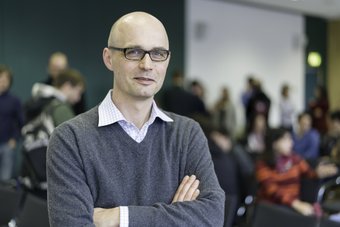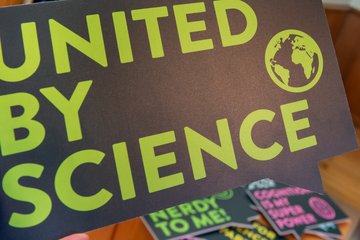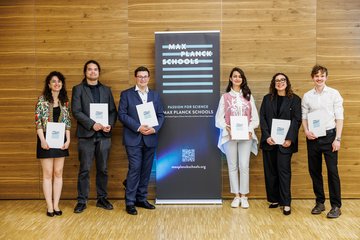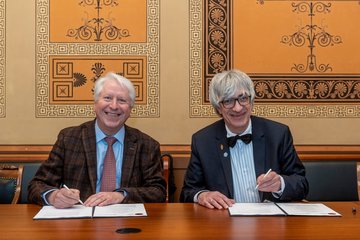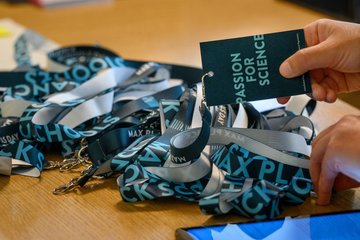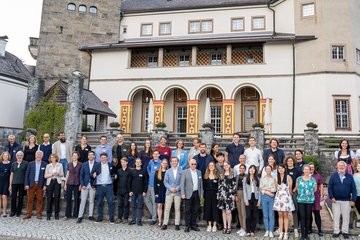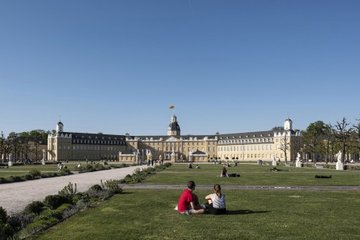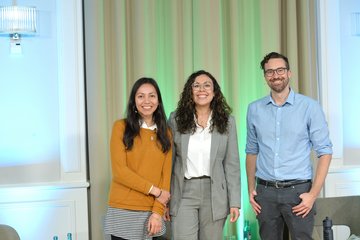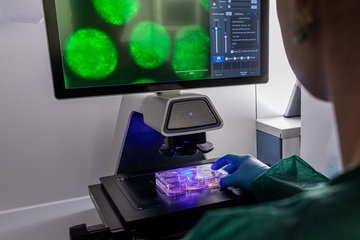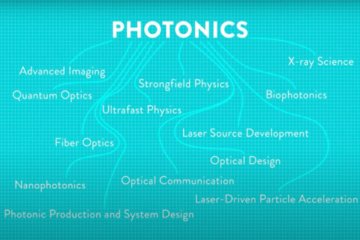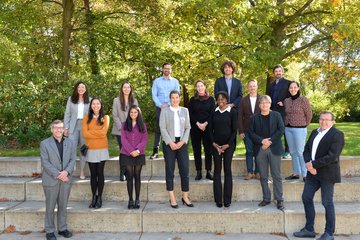“We offer intensely research-based Master’s/PhD education”
The Max Planck School Matter to Life is open to graduates from the departments of Chemistry, Physics, Biology, Biochemistry, Biotechnology and Material Sciences. Anyone who has secured one of the 30 places available each year can advance their projects at one of Germany's 20 most famous laboratories. An interview with spokesman Joachim Spatz on the school's curriculum and research.
“Matter to Life” is the theme of the Max Planck School. What does this mean exactly?
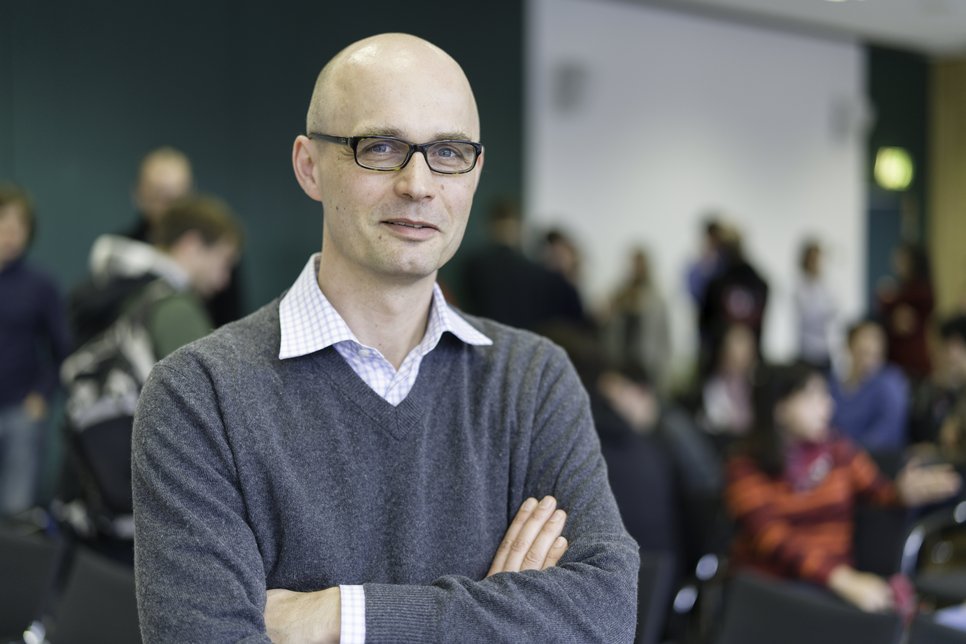
Joachim Spatz: We ask one basic question: What is life? And our answers are not philosophical, but rather give a quantitative answer from the perspective of physics, chemistry and biology. Our ambitious goal is to summarise life in one formula. We have learnt a lot in the last thirty to forty years about how organisms work, how a cell works. It is fascinating to see what nature can achieve. The next step is to build some thing like it ourselves. We know the building blocks and can combine them ourselves like Lego to create a functioning shell in which processes occur like in living cells. But our goal is not to create living creatures, but rather to mimic functions resembling life. A very primitive version of what life is. But nevertheless its foundation.
And how can society benefit from such research?
Joachim Spatz: “If I can’t build it, I haven’t understood it” – this is a quote by the physicist and Nobel Prize laureate Richard Feynman. If we want to understand life, we must build it. Step by step, like engineers. This might make the functioning shell more robust, and materials or functions might be revealed which nature itself may not have created. These could be a new type of antibiotic, or a cell or organ replacement. We all know that antibiotics have gained a bad reputation because bacteria are getting more and more resistant to the existing medication. So we need an entirely new concept. This could be via immunobiology: Looking at how the body protects itself and adapting certain aspects that could replace antibiotics. Currently that's one hypothetical scenario. And that's precisely what we are researching in my department.
How do you differentiate between “Matter to Life” and Synthetic Biology?
Joachim Spatz: Synthetic Biology generally looks at living organisms in order to then genetically modify them at molecular level. We want to take a material as well as molecular components, which definitely cannot be said to be alive, and use them to give life to the material system to be developed. That’s the fundamental difference compared to previous approaches in Synthetic Biology. Synthetic Biology has been around for a long time. With Matter to Life, we are only just starting, and it is the task of the Max Planck School to create a firm foundation. That also justifies the high commitment of all those involved, both financially and in terms of time.
What’s special about this Max Planck School?
Joachim Spatz: We are dealing with a topic that no university has dealt with fully so far. Many students will be interested because we have the best researchers at central locations in Germany. The University at Heidelberg, but also our Max Planck Institute, are world-renowned for Life Sciences, Chemistry and Physics, as well as the development of key technologies in this area. At the Technical University Munich, the main focus is on DNA nanotechnology. Göttingen is famous for complex systems in Physics. This is also reflected in the degrees available: All three universities will offer the new Master's Matter to Life, with Heidelberg specializing in Molecular Systems Chemistry and Engineering, Munich in Bioengineering and Göttingen in Physics. We view this network of 50 fellows also including our colleagues at the Leibniz Institute for Interactive Materials in Aachen and at the individual Max Planck Institutes across Germany as a major opportunity. This will be a way for the key scientists in Germany to research this topic for the first time, in order to develop teaching, as well as research, as central pillars of Matter to Life.
So it is possible to start immediately after completing a Bachelor's degree?
Joachim Spatz: Yes, we offer continuous Master's and PhD education and training. This is important to make us attractive for the best students internationally. Especially Americans and Asians moving to the USA or Canada decide after their Bachelor’s degree where they want to complete their doctorate. A Master's is less important in these university systems, it’s basically just a side-effect. But this also means: A Bachelor's degree already sets the course until after the PhD. And we want this course to lead to us in future. This integrated concept, Master’s degree plus PhD, with secure and sufficient financing, for an entirely new research area – that’s very attractive and competitive among international top institutions. This also makes Max Planck Schools an important research policy contribution for Germany.
In other words, Master's students - there will be approx. 30 per year - will decide on a specialization based on the location?
Joachim Spatz: Exactly. They have a specific study location from the beginning. In the first semester, there will be four or five lectures which will be compulsory for all three locations. They will be realized using e-learning. So if the lecture takes place in Heidelberg, it will be streamed for the other two locations. And in the second semester, there will be more specialized, local lectures.
Do you already know more details about the curriculum?
Joachim Spatz: The training concept is currently being agreed between the universities. But we already know that it will be a highly interdisciplinary curriculum. Students receive a wide scope of different knowledge, which they would not receive in a pure Physics or Chemistry degree. In addition, the studies and PhD are highly research-focused because students joint top researchers at laboratories early on, such as the Nobel Prize laureate Stefan Hell. Lab rotations are already used in the second year of the Master’s degree. These are not internships where you take a look and try out the equipment once or twice. Lab rotations are based on a research project which two fellows first draw up on an A4 page and for which students can apply. This allows the student to spend some time with first one and then the other fellow. The aim is to write a publication, e.g. for a Master’s thesis or a PhD.
If there are different locations, will they be working in the same spirit?
Joachim Spatz: We have four hotspots anyway: Munich, Heidelberg, Göttingen and Aachen, where the concentration of fellows will be high. This means that we exchange ideas, and meet up twice or three times a year. The students also attend these meetings between the fellows. Then there is the Welcome Course, which everyone attends at the start of their studies, as well as the Summer School. All locations also have College Homes. That’s where the students can live together, and they are linked to guest lecturer housing, which promotes the right spirit at these locations. This facilitates an exchange, such as when a student moves from Munich to Heidelberg for a lab rotation. And in ten or twenty years’ time, the students will also say that these College Homes were where their network for their research career was formed.
This interview was conducted by Jens Eschert
